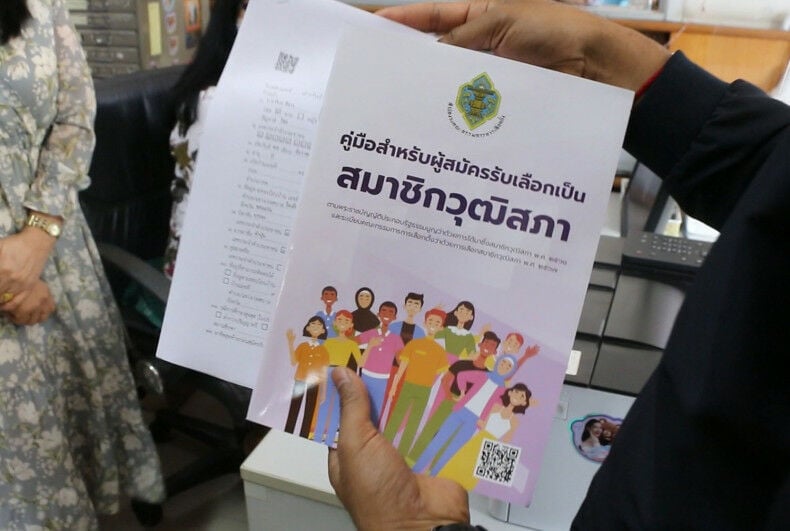Thailand initiates senatorial election process

Thailand’s senatorial election has begun, appointing a new group of 200 senators following the end of the five-year term of the current 250 senators who were appointed by the now-defunct National Council for Peace and Order (NCPO).
The Election Commission (EC) announced that candidates can now obtain application forms and necessary documents from district offices in Thailand’s capital and provincial registration offices across the country, between 8.30am and 4.30pm daily.
In the Mueang district in Khon Kaen, large numbers of people have already been to the registration office to collect forms and related documents. Watchara Seesarn, the director of the provincial election office, has overseen proceedings and reported that everything has proceeded smoothly so far.
However, a word of caution was issued to candidates about the publication of their photographs or documents on social media platforms, which could potentially breach legal regulations. The EC has issued regulations stating that candidates can only introduce themselves via an A4 poster to other candidates. Media interviews are strictly prohibited.
The application deadline will be announced on Monday, with elections set to take place at district, provincial, and national levels on June 9, June 16 and June 26, respectively. The election results will be announced on July 2.
According to the 2017 charter, the new Senate will consist of 200 members, who will not be directly elected by the public. Instead, the applicants will vote amongst themselves through three stages: district, provincial, and national. The existing senators will retain their power to scrutinise the government, endorse legislative bills, and appoint independent agencies until the new Senate takes office.
New Senate
The newly elected Senate will not have the power to co-elect a prime minister, unlike its predecessor, but will maintain its other powers.
Senator Seree Suwanpanont stated that the Senate can still continue to work. The appointment of members of some independent agencies is pending consideration by the outgoing Senate.
Senate Speaker Pornpetch Witchitcholchai revealed that the Senate has endorsed 53 legislative bills during its five-year term, spending a total of 1,579 hours and 55 minutes in parliamentary sessions.
The constitution stipulates that the Senate serves a five-year transitional period following the general election, as witnessed in 2019. During this period, the senators were permitted to join MPs in electing a prime minister.
Over the course of their term, the Senate, appointed by the junta, co-elected two prime ministers and rejected one candidate. In the 2019 election, General Prayut Chan-o-cha was elected as prime minister with a significant support of 249 senators. Pita Limjaroenrat, leader of the Move Forward Party (MFP), was unable to secure enough support in his bid to become the 30th prime minister, reported Bangkok Post.
Srettha Thavisin was elected as prime minister on August 22 last year, receiving the backing of 152 senators.
Latest Thailand News
Follow The Thaiger on Google News:


























